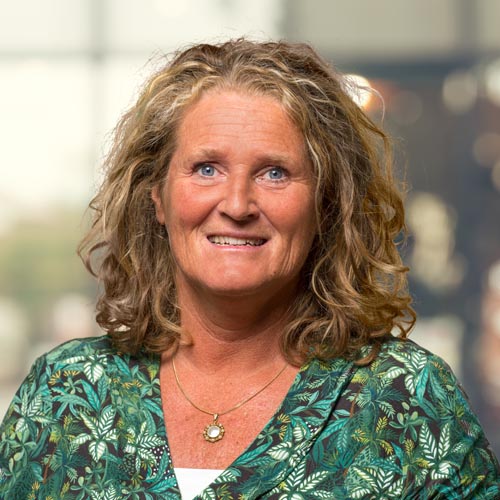
Mathilde Miedema

With TNO Innovation for Development (I4D), Mathilde Miedema launches innovative solutions for societal problems in low and middle-income countries. In this way, TNO helps to create greater equality in the world.
'I initiate, coordinate, develop and realize sustainable innovations in international partnerships for markets in Africa and Asia, targeting low-income groups. Focus on circularity - plastics, construction materials, nutrition – insects for food, mother and child health, mental health, renewable energy and digitization.'
With our work we improve the lives of 1 million people in low- and middle income countries. The impact is on boosting local entrepreneurship, employment, income generation and access to affordable basic services for low income groups. Our efforts contribute to the SDG’s.
Innovation ecosystem
‘Countries such as Malawi, Kenya, and Uganda lack an innovation ecosystem like the one that we have. For example, here in the Netherlands we have innovation programmes and other incentive schemes for SMEs. And government, universities, and industry work together to get innovations and transitions off the ground. This is why African companies with promising business plans often run into the sand after a period. An innovation ecosystem boosts their chances of success. We play a connecting role in this by guiding innovations and transitions as an independent party.’
Cold bricks
‘We do this in Malawi, for example, with our Cold bricks project. TNO has developed a type of brick for Malawi made from local materials that do not need to be fired. Therefore, no trees have to be felled in order to heat kilns. This brick is proving a success, because the government is backing it and has banned other, environmentally harmful, production processes. We’ve concluded a licensing agreement with a large local construction company. Now they have the ‘recipe’ for the brick and they’re going to produce and market it. And with the income from licensing, TNO is setting up a social brick fund for developing production methods that will also enable small-scale brickmakers from the informal sector to work in an environmentally friendly fashion in future and make a living in a sustainable way.’
Collaborative
‘Apart from an ecosystem, there’s another important condition for successful innovation: when there are multiple players in the supply chain, you need a collaborative business model. This means that players are open about their motives for collaborating and that these commercial and societal drivers are in balance in the partnership. In this way, public and private parties know what to expect from each other and what issues they can address in their relationship with each other in order to make the collaboration a success.’
Crickets on the menu
‘A lovely example is our Flying Food project in Kenya and Uganda. In this project, farmers rear crickets as an important source of food for people. These creatures are a sustainable source of protein and therefore a good alternative to meat, eggs, and other scarce and expensive proteins. We’ve drawn on our knowledge to set up a complete value chain, from rearing the insects to protein powder production. The collaboration is also attractive to Dutch companies, because it provides additional knowledge that’s useful to them, such as discovering all the things that you can make from crickets and how to market the products.’
Triple the impact
‘Fifteen years ago, I wrote a plan describing how TNO can use market-oriented methods to help solve societal problems in low and middle-income countries. The Executive Board was enthusiastic and gave me the go-ahead. There are now 15 projects on the go in the I4D programme. I mainly work on new market demands, searching for innovative solutions, forming partnerships, defining TNO projects with added value, and organising finance. Over the coming years, we want to triple the number of inclusive programmes – with triple the impact, because that’s what it’s all about.’
Leiden - Sylviusweg
Sylviusweg 71
2333 BE Leiden
The Netherlands